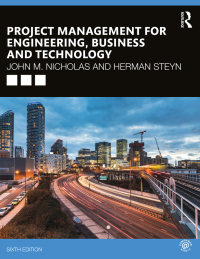With 2020 hindsight, draw a CE (fishbone, Ishikawa) diagram to illustrate possible causes and effects. Include the
Question:
With 20–20 hindsight, draw a CE (fishbone, Ishikawa) diagram to illustrate possible causes and effects. Include the possible causes mentioned in the case. The diagram should have been developed before construction; therefore, also indicate other possible failure modes and other causes you can think of. How would the diagram (developed after the accident) be of value during litigation?
Boston, July 1, 2006—four concrete panels weighing about three tons each fell from the ceiling of a Big Dig tunnel, crushing a woman in a car to death. The accident occurred in a 200-foot section that connects the Massachusetts Turnpike to the Ted Williams Tunnel. Said the Modern Continental Company, the contractor for that section of the project, “We are confident that our work fully complied with the plans and specifications provided by the Central Artery Tunnel Project. In addition, the work was inspected and approved by the project manager.”20 The panels, installed in 1999, are held with metal trays secured to the tunnel ceiling with epoxy and bolts. The epoxy-bolt system is a tried-and-true method: holes are drilled into the concrete ceiling, cleaned, and filled with high-strength epoxy; a bolt is screwed into the hole; as the epoxy cures it bonds to the bolt. “That technique is used extensively,” said an engineering professor at the Massachusetts Institute of Technology.21 For work like this, he said, safety “redundancies” are added, that is, enough epoxy-and-bolt anchors are used to hold the ceiling panels even if some failed. But in the connector tunnel, he contended, too few anchors were used. “They didn’t have enough to carry the load. There was no room for error.” He added, however, the evidence was preliminary and such a conclusion would be premature.
Some of the bolts in the ceiling wreckage had very little epoxy, and three of them had none.
State Attorney General Thomas Reilly’s investigation is focusing on whether the epoxy failed or construction workers who installed the bolts misused or omitted the epoxy. An accident caused by improper installation or errors in mixing the epoxy, he said, would implicate the tunnel’s design and designers. (Epoxy requires on-site mixing before use.) He added that some documents reflected “substantial dispute” among engineers over the anchor system’s adequacy to support the weight of the ceiling panels.
Step by Step Answer:

Project Management For Engineering Business And Technology
ISBN: 9780367277345,9781000092561
6th Edition
Authors: John M. Nicholas , Herman Steyn




